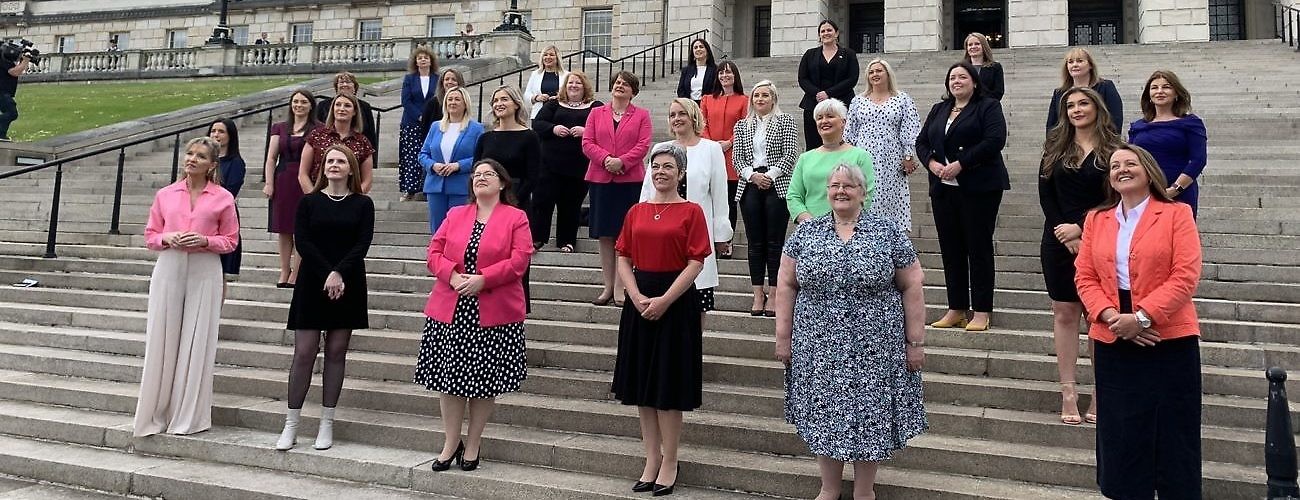Women Members of the Northern Ireland Assembly, June 8, 2021. (Amanda Ferguson)
The protection of women in armed conflict and their participation in peace and security activities are central pillars of the women, peace, and security (WPS) agenda. Overall, however, the WPS agenda has overlooked the relationship between participation and protection. This perpetuates a false binary between the participation of women as leaders with agency and the protection of women as victims of conflict. It also misses the gendered, context-specific, and conflict-related protection risks that accompany women’s participation. Finally, it overlooks the critical link between the harms women experience and their low levels of representation.
This paper considers the intersection between women’s participation and protection in the context of Northern Ireland. While often assumed to be free of “global policy” concerns such as WPS, Northern Ireland starkly illustrates the intrinsic connections and tensions between women’s leadership and protection in conflict and post-conflict situations. After providing an overview of these connections and tensions more broadly, this paper examines the participation and protection of women in Northern Ireland since the 1998 Good Friday Agreement. It draws from twenty-five semi-structured interviews with women in leadership positions in Northern Ireland.
The paper concludes that gender inequalities and gendered insecurities intersect with sectarianism, the legacy of violence, and political crises arising from power-sharing arrangements under the peace agreement. These, in turn, intersect with emerging technologies such as social media to stymy women’s participation across all areas of post-conflict political life. While these findings underscore the continued relevance of the WPS agenda, they also signify that deeper engagement with gendered protection issues is required if the agenda is to substantively advance women’s equality and participation in the longer term.








